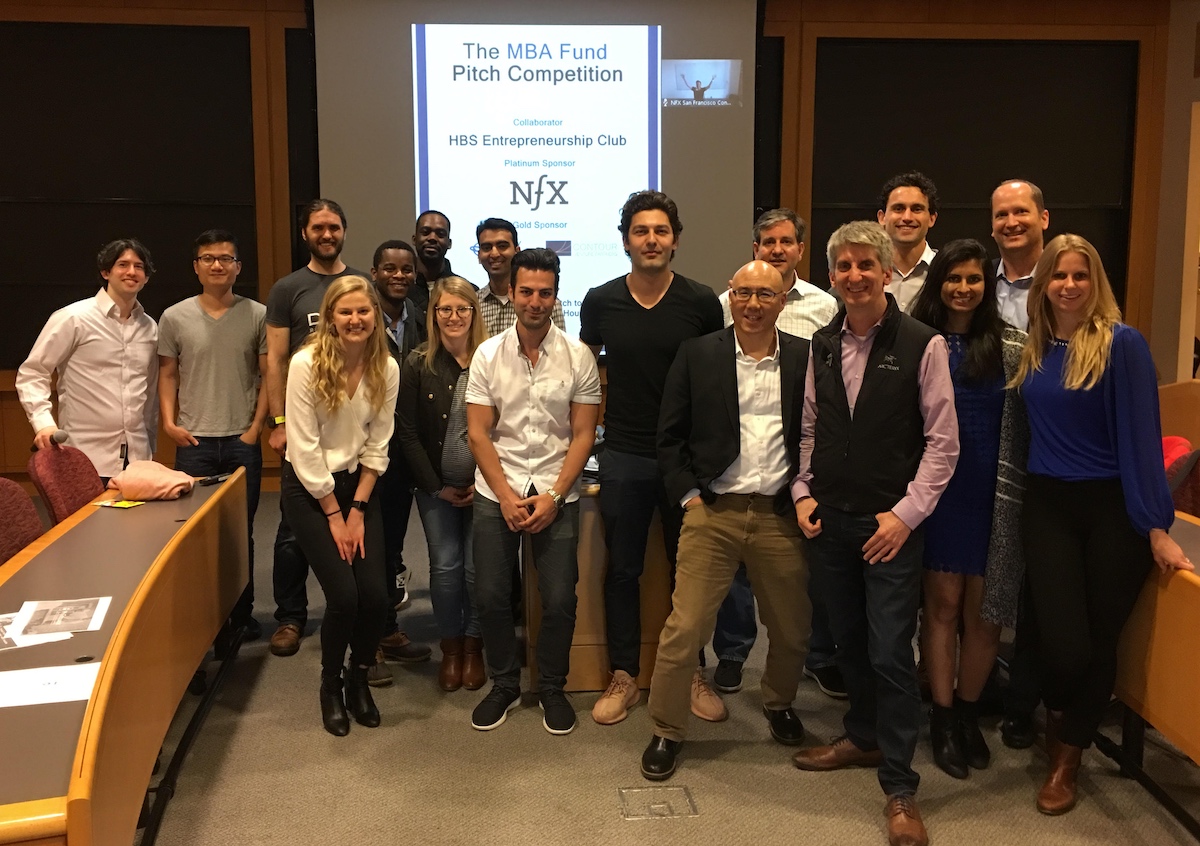Despite that MBA students are more like to find themselves on Wall Street or in consulting than bootstrapping or pitching to investors, Wharton School student Sieva Kozinsky’s The MBA Fund is looking within his own pool to find the next big thing in startups.
The millennial entrepreneur and investor is now a general partner of the startup investment fund cofounded with fellow MBA candidates Josh Hoffman-Senn (Harvard Business School), Hansae Catlett and Hiro Tien (both Stanford Graduate School of Business).
Starting a student-focused program meant they needed to be on the front lines. As such, student-run startups from their three schools participated in The MBA Funds’ first Campus Pitch Competition, held in mid-May at Wharton at the University of Pennsylvania in partnership with seed fund NFX.
“As seed investors, we’ve invested in many student or recent alumni companies, so when The MBA Fund came to us with the opportunity to attract, mentor and invest in founders from these communities, we jumped on board instantly. It was a no brainer for us,” said Pete Flint, managing partner at NFX and founder of Trulia, in a press release.
Plucked from hundreds of applicants, according to Kozinsky, 15 companies from the three schools were awarded over $1 million in prize money for the inaugural event. “Shark Tank“-style, investment companies NFX, Contour VC and Bain Capital chose how much they wanted to offer the candidates. Winners also received free hosting services and legal counseling.
Here are the Wharton winners and the amounts they took home:
- Kidas — $25,000
- Vise.ai — $25,000
- Carry.Travel — Undisclosed
- Vroom Delivery — $55,000
- Strella (which also appeared on an episode of “The Pitch“ in December) — $30,000
Kozinsky said the fund offers entrepreneurs the chance to focus on their venture full-time without needing to supplement with a full-time job or internship to pay the bills. In addition to funding, the program offers mentorship from 15 Campus Investment Partners, aka advisors, at the three schools who come from a variety of fields and offer help with hiring, networking and operations.
“Most early-stage investors add little more than cash,” said Wharton MBA candidate Toni Oloko, cofounder of Orthy and a previous recipient of MBA Fund capital. “MBA Fund has been one of the most value-add investors on our cap table.”
Big-name entrepreneurs such as Elon Musk and Peter Thiel have criticized MBAs in the past, but last year, the MBA Fund compared 1,968 companies and found that those created by Harvard, Stanford or Wharton MBA students and alumni were 35% more likely to raise $10 million in investment funding and 20% more likely to be valued above $100 million compared to non-MBA-founded companies.
Plus, according to a Pitchbook report, the top MBA schools, which include Harvard (#1), Stanford (#2) and Wharton (#3), have also yielded the most unicorns (aka billion-dollar-value companies) of other MBA and undergrad programs. Kozinsky said The MBA Fund intends to invest in the top 20% of startups at each school, and hope a unicorn is somewhere in the mix.
In the fund’s first six months, it has invested in 15 companies and co-invested or received follow-on from investment funds such as Accel, NEA, Lightspeed, Founders Fund and Floodgate Capital.







